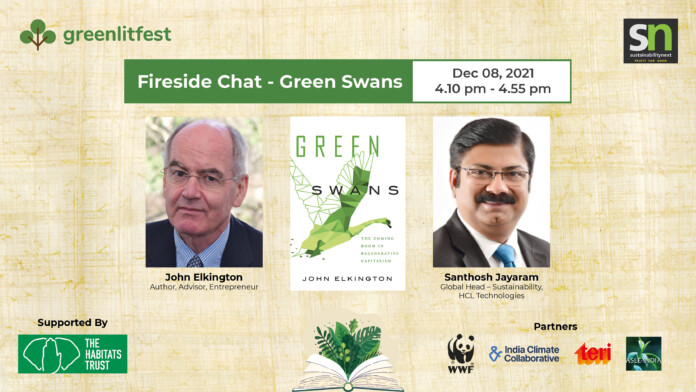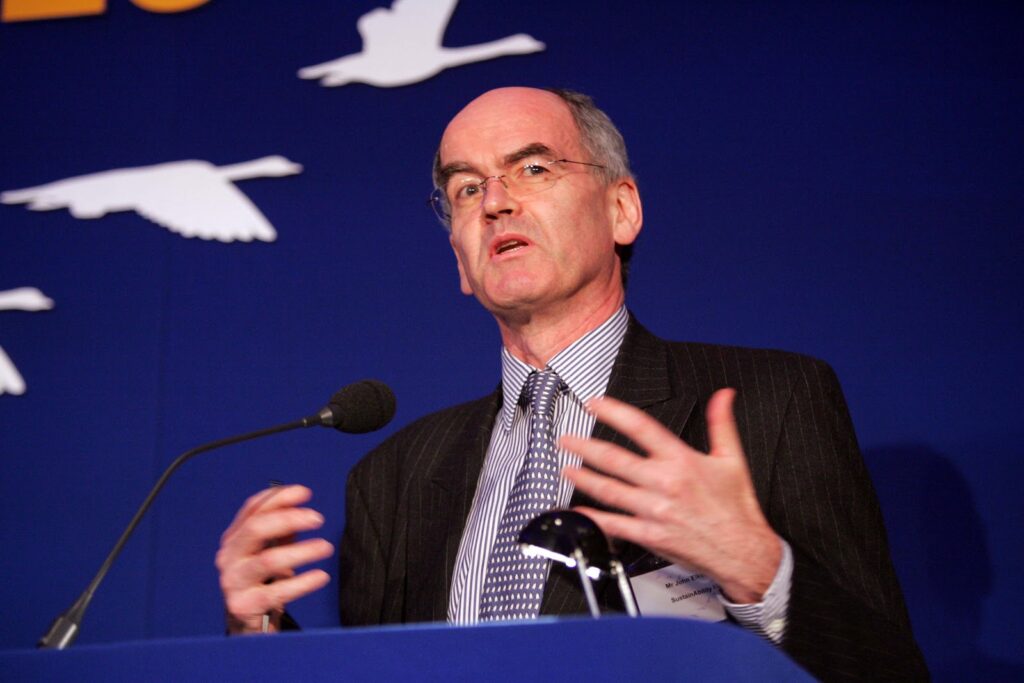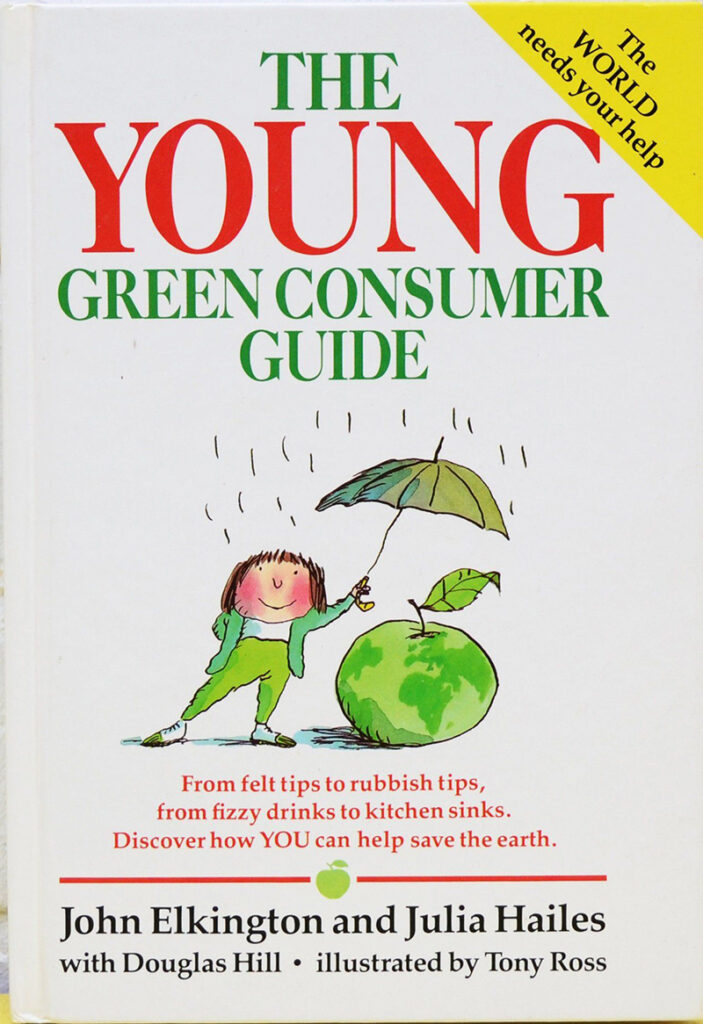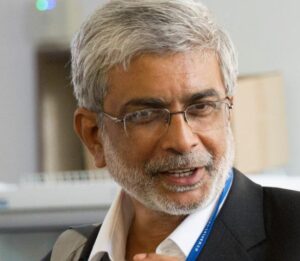John Elkington calls himself the Ambassador of the Future. Author, entrepreneur, publisher, advisor, John inaugurated Greenlitfest, India’s first green literature festival, on 8 December 2021.
John published his first book, after many rejections, at 30. Many of his 20 books are bestsellers. He is 72, and says his next big project is to work on the Inter-generational Project – bringing children and the seniors together to exert greater influence in shaping the present and the future.
Highlights of John Elkington’s Fireside Chat with Santhosh Jayaram, Global Head – Sustainability, HCL Technologies Limited.
Login on to www.greenlitfest.com to watch sessions on Green Business, Green General and Green Children Literature.
On Greenlitfest
One of the things this fest (Greenlitfest) has spurred (in me) is to go back to some of the Indian authors whose books I have and some of whose I don’t.
What you are doing with this fest is very timely. I think it is a form of leverage – cultural, mental, emotional and psychological, which has huge power over time. I’m sure in the coming years it will expand its reach and impact. Huge congratulations.
One of the advantages of literature, including children’s literature, climate science fiction included, is it helps us understand things we would otherwise find it difficult to understand and therefore deny or ignore.
On writing
I use writing to learn. When I sit down to write a book I don’t necessarily have a sense of where it is going to take me. I think I was born in some ways as a writer of books.
I use metaphors often because it helps us to imagine, otherwise it would be difficult to explain complex ideas. (John’s popular metaphors – Chrysalis Economy, Cannibals with Forks, Placebo Effect, Ugly Ducklings, Green Swans.)
When I started talking of green, my parents thought I was infected with some alien intelligence, that something had gone wrong with my boy. It took 20 years for my father to recognize and celebrate what I do.
My generation were told to wake up and change. Now it is about changing right now.
I think the next 12 to 15 years of my working career will be by far the most dangerous and exciting. It is critical that we work with older people and younger people. It has to become an inter-generational effort.
Advise to Young Writers
Keep persevering. Stamina is immensely import. Faith in yourself is important, not arrogance. You should have confidence that you do have something important to say.
Constantly listen to see whether what you are saying and writing are connecting with the audience. Pay attention to what your audience is thinking. Say what’s truly on your mind and never give up.
On Children’s Books
When I get tired or bored, I read children’s books. I have always been fascinated by children’s literature, graphic novels, and others.
We published The Young Green Consumer Guide in 1990. It sold a million copies in 18 months. It had excellent illustrations. I love the idea of writings for children. Children’s books need extraordinary visuals.
I was fascinated to see children and their stories at the Greenlitfest.
How Did Greenswans Happen
When I reread Nissim Taleb’s Black Swan, which essentially talked about how some events just come out of the blue and make an impact of immense proportion. When we are hit by it we wonder what happened; we think we have understood it. In fact, we often don’t realize what happened to us, and then go on and do the same mistakes all over again.
If Black Swan events are about where we don’t want to go, the Green Swan idea is – what if we develop solutions for some of the world’s greatest problems which could take us to a kind of the world where we want to go.
The Green Swans The Coming Boom in Regenerative Capitalism (published by Fast Company Press, 2020) is beginning to influence people’s language. It came at the right time (April 2020). It’s all about the right timing, a critical factor for the success for a book.
Covid 19 is not a Black Swan event according to Taleb. People could see it coming as scientists and health professionals had warned governments but they chose to sit on them.
Often, information about impending dangers are so alarming that governments often deny them because they don’t understand them. I had warned Indian ministers, 15 years ago, about the high possibility of the Himalayan glaciers melting and affecting all the river streams. They chose to ignore me. See what’s happening now.
From Placebo Effect to What’s in it for Me
A lot of what has happened in the corporate responsibility (CR) space is that it has moved from being a placebo effect (of feeling good by doing good) to ‘we must have it or we will perish’.
I think we are at a dangerous point. The CR is becoming mainstream today. When it becomes mainstream people behave differently. They want branding, positioning and what not. They all want a piece of the cake.
Glasgow COP 26
Today, business leaders are at the forefront of driving climate change.
I was listening to four CEOs at Glasgow – Unilever, IKEA, DSM, Aciona. What was really surprising listening to them is their zeal for change. Earlier we hardly used to get through the front gates of companies. Now we have access to their board rooms.
What was nice to have has become fundamentally important to business. CR has become existential at all markets. New technologies are blowing away all business models. Environmental stories are not at the edges, but are intrinsic.
Triple Bottom Line (TBL) Recall
“How often are management concepts subjected to recalls by the people who invented them? It is hard to think of a single case.
If an industrial product like a car fails the manufacturer pulls it back, tests it and, if necessary, re-equips it. In case manufacturers grow careless, governments run periodic road safety tests. Management concepts, by contrast, operate in poorly regulated environments where failures are often brushed under boardroom or faculty carpets. Yet poor management systems can jeopardize lives in the air, at sea, on roads or in hospitals. They can also put entire businesses and sectors at risk.
With this in mind, I’m volunteering to carry out a management concept recall: with 2019 marking the 25th anniversary of the “triple bottom line,” a term I coined in 1994, I propose a strategic recall to do some fine tuning.
(Excerpt from John Elkington’s piece in HBR June 25, 2018)
The TBL concept still has great use. In fact, today there are 4000 certified B Corporations. (Certified B Corporations are social enterprises verified by B Lab, a nonprofit organization. B Lab certifies companies based on how they create value for non-shareholding stakeholders, such as their employees, the local community, and the environment.)
The new management idea today is ESG (Environment, Social and Governance) rating of companies. ESG is a child of TBL which has gone ballistic in the last few years.
In ESG, E is easier to achieve, but it’s a pity about the Social side.
Shankar Venkateswaran (former chief at Tata Sustainability Group, now head at ECube Investment Advisory) wrote a piece ESG in a post-COVID India – Bringing the “S” back to the Centre. It is worth reading.
a
Support Green Journalism
Dear Readers,
Since March 2013, SustainabilityNext (SN) has been educating and exciting thousands of entrepreneurs, executives and graduate students about the power of Sustainability in influencing our future. It’s purpose is to inspire and provoke Indians to move swiftly from awareness to belief to ACTION.
As of December 2021, SN is India’s most read digital magazine on the business of sustainability. It has been covering Green Business, Green Products, Social Entrepreneurship, Green Literature, Green Technology, among others. A youth section was added in 2021.
SN launched India’s first Green Literature Festival (www.greenlitfest.com) in June 2021 to offer a robust platform for readers and writers to hold meaningful conversations.
For SN to grow and stay relevant it needs to transition from a grant and self-funded model to a community-funded and/or institution/corporate-funded model.
Looking forward to your timely and generous support.
Why Support SN – https://sustainabilitynext.in/support/
Subscriber
Supporter
Benefactor
Sponsor
All supporters get two-year subscription to SN. You can Gift Subscription to your colleagues/friends/family.
For sponsorships and advertising please contact
Benedict Paramanand
Publisher & Editor
benedict99@gmail.com
a













